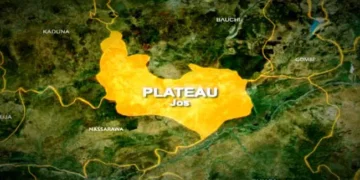The Federal Government spent a total of N628.61 billion as subsidy on electricity in , while power distribution companies (Discos) collected a revenue of N1.08 trillion during the same period, according to the latest industry data obtained from the Nigerian Electricity Regulatory Commission (NERC). The data reveals that electricity subsidies continued to increase throughout the year, with subsidies in the first, second, third, and fourth quarters of amounting to N36.02 billion, N135.23 billion, N204.6 billion, and N252.76 billion, respectively. During the same period, the Discos generated N247.09 billion, N267.86 billion, N267.61 billion, and N294.95 billion in revenue in the first, second, third, and fourth quarters of , respectively.
The rise in revenue by the Discos has led to calls for improved services from the power firms, as consumers express dissatisfaction with the inability of the Discos to provide satisfactory service. Currently, in the absence of cost-reflective tariffs, the Federal Government covers the gap between the cost-reflective and allowed tariff in the form of tariff subsidies. The subsidy is applied only to the power generation cost payable by Discos to the Nigerian Bulk Electricity Trading company, while the transmission and administrative service costs payable by Discos to the Market Operator are recovered in full.
It is important to note that the power generation cost is a crucial component that ensures electricity generation and supply across the country. The share of the NBET invoice to be covered by Discos is determined by the percentage of the generation cost they can recover from the allowed tariff.
The NERC report stated that in the fourth quarter of , the government incurred a subsidy obligation of N252.76 billion, representing an average of N84.25 billion per month. This is an increase of N48.16 billion (23.54 percent) compared to the N204.6 billion (average of N68.20 billion per month) incurred in the third quarter of The increase is largely due to the government’s policy to harmonize exchange rates while keeping end-user customer tariffs at the approved rates.
In the third quarter of , the government incurred a subsidy obligation of N204.59 billion, an increase of N69.37 billion (51.30 percent) compared to the N135.23 billion incurred in the second quarter of . The increase can also be attributed to the government’s policy to harmonize exchange rates. The rise in the government’s subsidy obligation meant that in the third quarter of Discos were only expected to cover 45 percent of the total invoice received from NBET.
The NERC data also reveals that power distribution companies collected approximately N1.1 trillion from customers across the country in despite complaints of poor supply by end-users of electricity. The collection efficiency of the Discos in the fourth quarter of was 73.79 percent, a decrease of -2.77 basic points compared to the third quarter. The commission has observed that whenever there is an increase in energy offtake, there is usually a decrease in Discos’ billing and collection efficiencies for the same period.
This inverse relationship poses challenges to the long-term growth of the Nigeria Electricity Supply Industry unless Discos make significant progress in improving energy accounting and addressing the major causes of losses.









